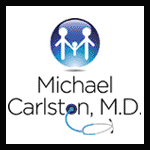Those of you who have been reading my newsletter for the last few years will probably remember the article I wrote (posted also on my website) regarding the huge investment drug companies have made in their efforts to influence physician prescribing, the success of those efforts and the facts about how this compromises your health care. Unfortunately, the situation is not improving. Worse yet, I have to say that the integrity of medicine is also compromised. There is considerable evidence that physicians, despite our belief in our own impartiality, are in fact unquestionably influenced by relationships with companies who sell health care products of all sorts. It is becoming clear that too many doctors have become shills for industry, especially drug companies and the manufacturers of medical devices.
This unfortunate state of affairs has developed chiefly as an innocent consequence of our own naivete and the natural human inclination to trust those close to us. Ethical standards can appear contrived and overly restrictive, but they are necessary, as abundant evidence proves that our judgment is easily impaired and manipulated.
My best friend in medical school first became known to most of our class because of an open letter he wrote to us, urging that we refuse the free stethoscopes donated by a drug company. He pointed out that “free” is not free. These “gifts” cost somebody something. Companies charge more for the drugs they make to cover such costs. Eventually this comes out of the pocket of patients. The goodwill generated by the company becomes a blood debt. Docs inevitably feel indebted to the company. My truly wonderful medical school advisor dismayed and disheartened me when he told me that he always brought an empty suitcase to the annual meetings of the American Academy of Family Practice to carry home the “gifts” from the exhibitors (i.e. usually drug companies). He was an excellent and thoughtful physician and human being whom I still admire in many ways. But I think he was less concerned about this influence than I think he should have been.
The latest unpleasant reminder of this dubious relationship is focused on treatment guidelines in cardiology. These guidelines establish the standards of clinical care. Major medical organizations advise practicing physicians and patients as to what sort of treatment should be provided to patients who have specific diagnoses, test results or symptoms. These guidelines almost invariably recommend prescription medication far more than I think is reasonable, based upon my consideration of those same research facts. An investigation of these guidelines found that the majority of the physicians on the advisory committees who consider the data and create the guidelines, are also paid-consultants for drug and device manufacturers who stand to gain from the treatment recommendations.
This is clearly unethical. Most disturbing is that the organizations who establish these guidelines are supposedly the most highly regarded, reputable groups in conventional medicine. I am saddened and angry, as you should also be. You dutifully try to take care of yourself, trusting that the recommendations for healthy cholesterol, blood pressure, blood sugar, etc, are scientifically based and promoted in YOUR interest. That is not as true as it should be.
